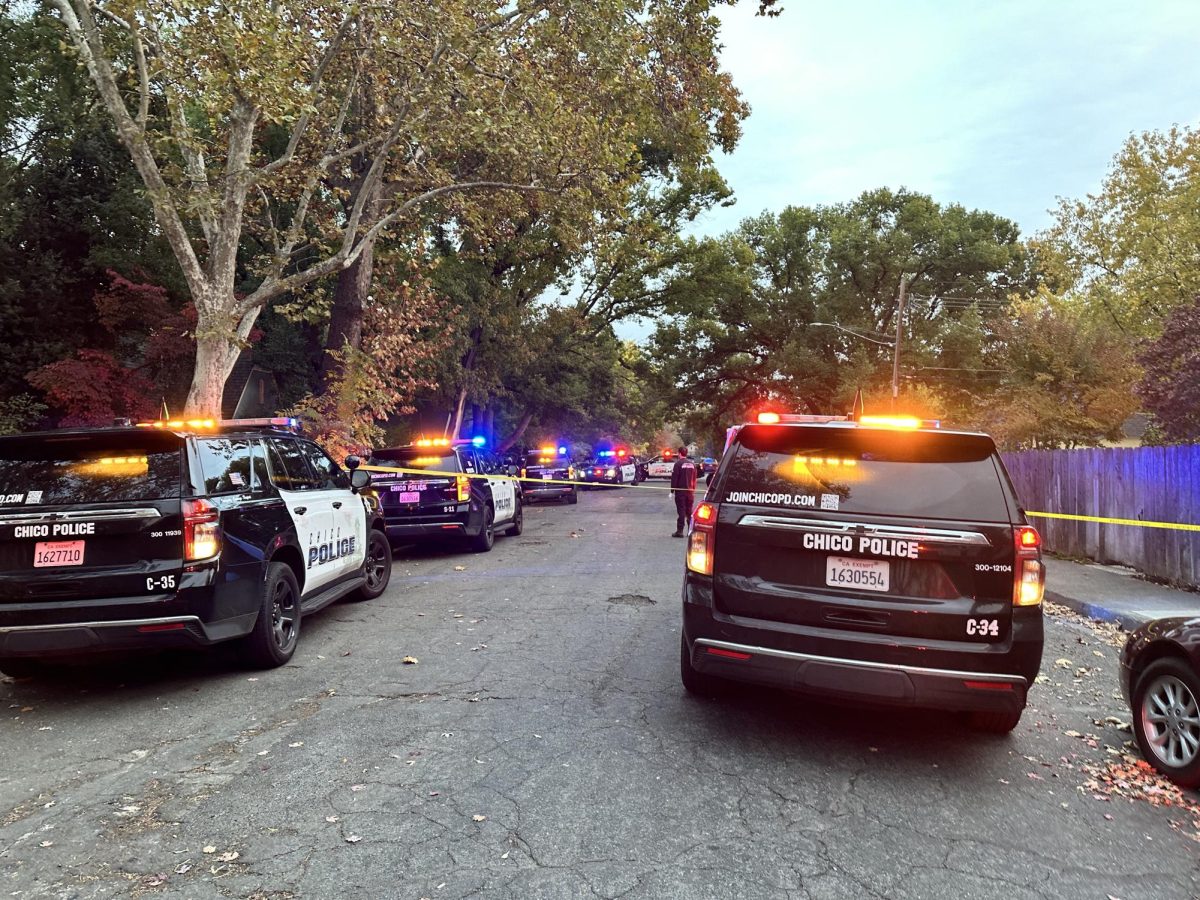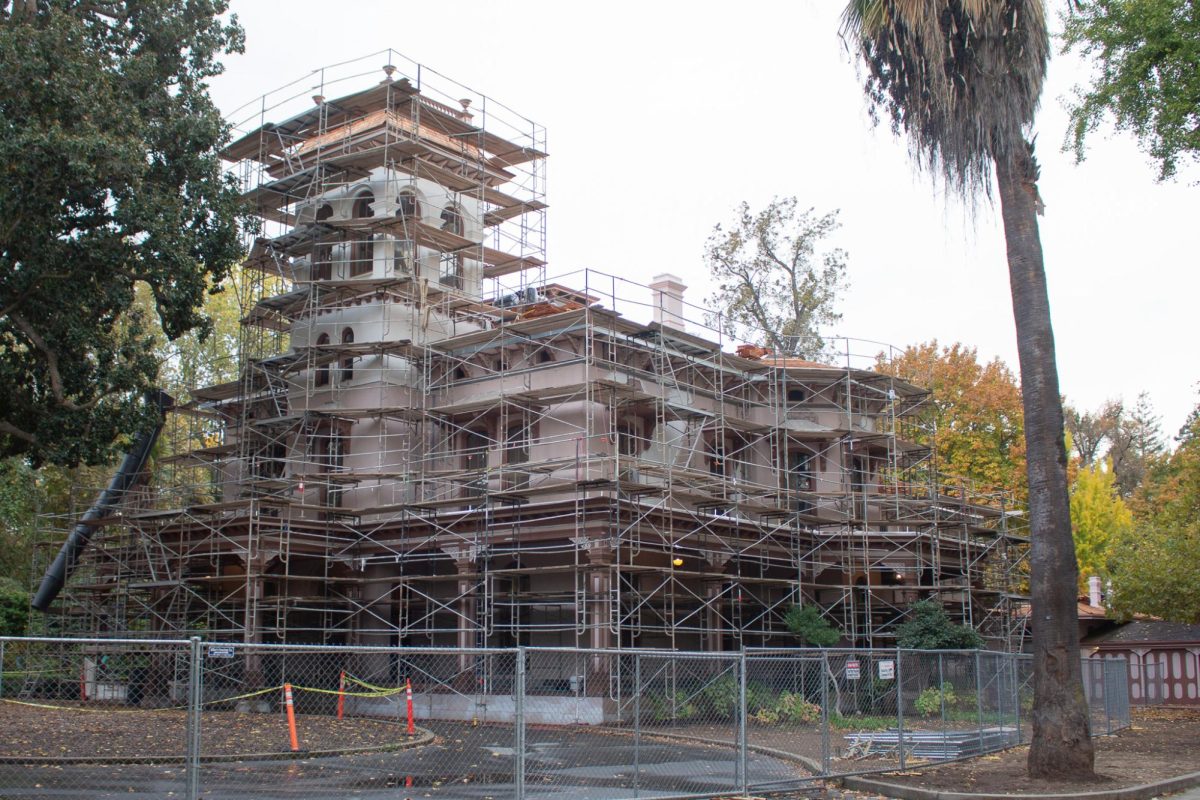Within the last year, police presence has been increased on campus — and reactions have been mixed, according to the University Police Department.
When students voice their concerns about their safety, many show reluctance to report possible crimes or concerns, according to UPD Chief John Reid.
Why some students choose not to seek law enforcement may translate from their attitudes towards police. A Louisiana State University study found a significant difference between black students’ attitudes toward the police when compared with white students, often stemming from factors such as race, socio-economic status, and their campus’s history of police use of “force, minority victimization, cultural competency and situation de-escalation.”
At Chico State, students’ relationship with different uses of force by UPD have been mixed.
Last month, California Customs and Border Patrol were spotted tabling in the Career Fair on campus, leaving some students feeling unsafe and unvalued, according to Gender and Sexuality Equity Coalition (GSEC).
In the past year, UPD has responded to several activities that have been concerning to the community of Chico State.
One incident involving a suspicious suspect watching students, asking threatening questions, and timing himself walking through exits on campus last March led to rumors about police hiding the incident. In addition, UPD took days investigating the cause of the body of a homeless woman who was found in front of Kendall Hall last October.
These incidents combined with previous experience led to several students who shared their experiences as people of color, having witnessed their families being mistreated or even killed by law enforcement, according to Alejandro Ramirez, Associated Students’ Director of Student Affairs.
Ramirez said that when safety incidents occur, it may seem easy to try to solve it by adding more security on campus, but he doesn’t see this helping.
“In cases such as the man who made bomb threats, police failed to respond by even giving a description, ” Ramirez said.
“For example, before the public scare happened about him possibly having a gun–which he didn’t, and wasn’t on campus at that time, the guy had come on campus and started harassing black people two weeks before that. Police had been called and were responding, patrolling around the area but there was no communication with the community, nothing really extra saying, ‘Here’s the information on the person, stay safe’– the response was really minimal.”
Ramirez said that his solution is to rely less on police and more on community.
“Let’s say they brought more police to the Meriam Library — which I’m glad they didn’t — a lot of times the status quo is to instigate or book someone on a crime. Ramirez said. “I’m not so sure about UPD, but I know public police have quotas.”
Chris Nicodemus, commander of UPD, addressed the department’s relationship with students on campus.
“We’re responsible for the physical security of the university, so that’s the security of the buildings, that’s the card access, lighting, surveillance,” Nicodemus said. “Those are things that we try to get better at, make those adjustments, recognize those needs.”
“You see the badge, the uniform, but underneath that, there’s an actual person,” he said. “We’re not from some super-planet that only has cops on it, we’re all from society, part of the community. The things that have happened negatively, we understand that it’s happened, but it’s about having respect for both sides and bridging that gap.”
Nicodemus said he wishes students would realize that cops are humans.
“I’m Commander Chris Nicodemus, but I (also) coach Little League,” he said. “I’ve coached hundreds of kids throughout the years. We’re all part of this community.”
“A big part of this job is trying to just trying to look at things through the lens of other people,” he said, saying that when he shows others footage from body cameras worn by officers, they are often surprised to get new information from the technology.
“Establishing that communication, that respect for each other, building that rapport is key,” he said. “We’re here to keep you safe and we’re listening… feel free to talk to us and approach us.”
Kimberly Morales can be reached at [email protected] or @kimberlymnews on Twitter.









